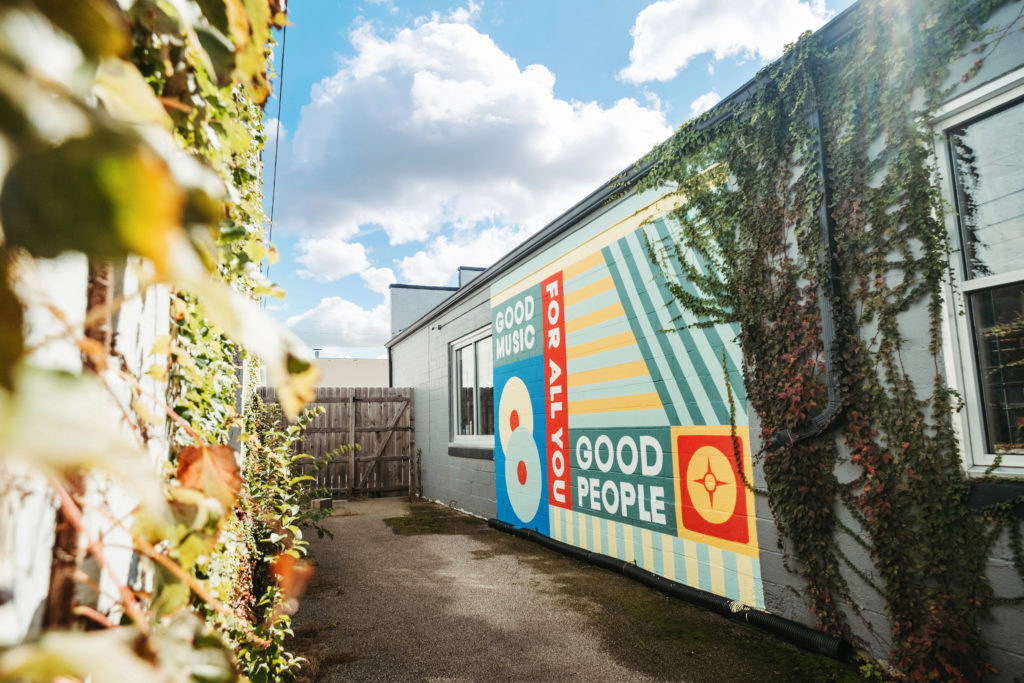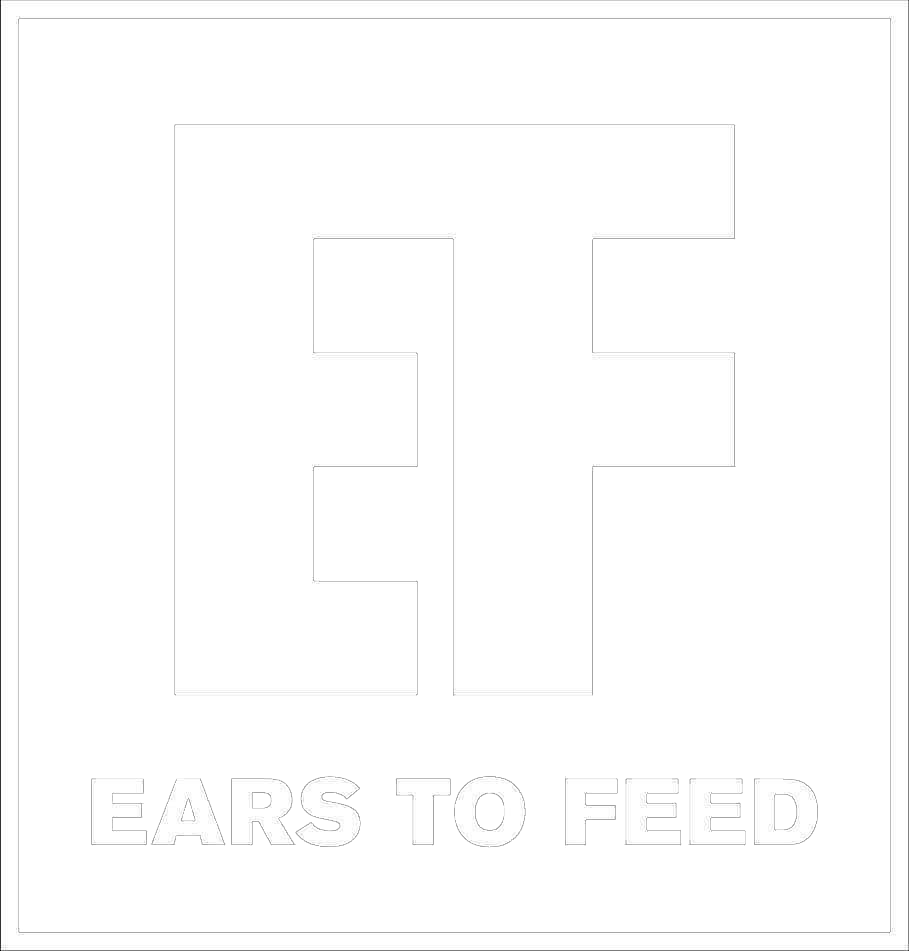With the resurgence of vinyl as the main physical format in music, there have been many labels that have emphasized their dedication to wax that have been enjoying saying “hold my beer” as labels work out the kinks from a production standpoint. Polyvinyl Record Co. has been one of these labels, putting in the wax-work, releasing vinyl when it wasn’t in vogue since they were founded in 1995.
Speaking with the label’s production manager Chris Hassen, that dedication helped the label to adapt over the past year when vinyl pressing plants were overwhelmed by increased demands as music fans were buying more frequently online as the world shut down. With a rich back catalog of seminal emo releases and genre pushing indie rock, the label has been a true pillar of American underground music for nearly two decades. With artists such as Jeff Rosenstock, Alvvays, American Football, Julia Jacklin, The Get Up Kids, Pedro The Lion, of Montreal and Xiu Xiu calling the label home, Polyvinyl’s roster still maintains a mix of old and new pointing to both the past and the future.
In this conversation Hassen discusses how he got his start with Polyvinyl, the emo resurgence and the joys of working with Jeff Rosenstock.

When did you know you wanted to get involved with releasing music instead of being a casual fan?
Personally, I have no musical ability whatsoever. I have never played an instrument and have never been on the creative side of music as far as that goes. I’ve always been much more firmly in the listening and appreciation type zone. I think it was probably around high school when I became more passionately interested in music. Before that, I would listen to whatever was on the radio just passively consuming it. In high school I started to get into more punk meaning “Warped Tour Punk” and bands that would be more “underground” that you would have to seek out..
When I went to college at the University of Illinois, for incoming freshmen they had this event called Quad Day where all of the student clubs and organizations set up booths to recruit incoming freshmen to join. One of the groups that I came across was a student run record label that had been going for a couple of years on campus. This group of students got together with the aim of replicating what a record label would do but for bands and students of the University. The stipulation was that 75 percent of the members had to be enrolled as students. So I joined that and did that for pretty much the entire time I was in college.
To start off the year, we would have an open call for submissions so we would have all of these groups and songwriters sending in demos and their tracks. We would choose 10 to 15 of what we thought were their best ones and we would pay for them to record a song in a professional recording studio here in Champaign. We would book shows for them around campus. We tried to get them published in local media outlets. Then we would put out a compilation CD of all of the tracks at the end of the year with a big release party. That was my first real hands-on experience and it was cool to be a part of that process in an independent way where we had to do anything ourselves. There wasn’t an adult advisor or anything like that.
Through that one of the people that I knew through that organization had interned at Polyvinyl for a semester. That got me interested to see what it would be like to do the same sorts of things in a more professional atmosphere. I interned at Polyvinyl my junior year and stayed through the summer and started working in mail order part-time. When I graduated, I was lucky enough to get a full-time job here.
When you mentioned “Warped Tour Punk”, are we talkin’ Epitaph and Fat Wreck bands?
Yeah, those were definitely labels that would be in the zone. I like to say that I listen to punk but real punks would be like, “Nah, that’s not punk.” I was definitely into more of the Fueled By Ramen … Drive Thru Records was one of the first labels I became aware of. Before that, there were different bands that I liked. But Drive Thru was the first time I realized there was sort of like this entity behind the bands. They were curating this roster of artists. I started subscribing to Alternative Press in high school and the very first issue I got had a Drive Thru Records sampler CD. That was an influential moment in my life. I tought, “Oh, I love every song on this sampler.” All of those bands were brand new to me and they were all a part of this same label.
Growing up on this kind of music, were you aware of any of the classic Polyvinyl releases from bands like American Football, Braid, Rainer Maria, etc.?
I am ashamed to say that I was not. Very much not (laughs). I’ve been at Polyvinyl for around 13 years at this point. At that time in my life, I was very not hip to the “indie scene.” Of Montreal was sort of the big cornerstone band for Polyvinyl. When I came to intern, Hissing Fauna had come out in 2007 I believe. So it was a year removed from that and Skeletal Lamping was about to come out and it felt like this was going to be the follow up to this massively successful record. But for me, I only really knew of Montreal because of the Outback commercial they were in. I think I was aware of Someone Still Loves You, Boris Yeltsin because of how abnormal their band name was. Broom had come out fairly recently and was kind of a big deal in the blogosphere. I wasn’t very tapped into that scene at that time. Even though Polyvinyl had a bunch of influential emo punk bands, like you mentioned, and a lot of the earlier bands were more inline with a lot of Dischord bands, like Corm or Radio Flyer. But yeah, it wasn’t something that I hadn’t gone back and understood the lineage or anything like that.
I remember when I came in for my interview, it would have been right before winter break. I was going to be driving out to Brooklyn with my parents to visit family. At that time we had this promo wall that had all of these promo CDs. They were like, “Just grab a bunch of CDs so you can listen to them on the ride!” I think I walked out with 30 CDs (laughs). I was like, “I don’t know any of these bands. I need to listen to them!” There wasn’t Spotify or anything at the time.
I always look back and feel somewhat embarrassed to think I was this guy walking out of this place I just interviewed at with a big box of CDs. But, yeah I had to give myself an education on what Polyvinyl was up to for sure.

The early releases have all remained influential and have spawned this emo-resurgence that is so strong today. It really put you in a strong position to have this legacy that will attract more new bands. Was that resurgence a surprise initially at the label?
I feel like the time that I started was an interesting one because at that time Polyvinyl would have been a label for 12 years or so at that point. It wasn’t a brand new thing, but it wasn’t at the scale that we are at now. I think that one thing that is a large part is not just the genre resurgence but also the vinyl resurgence. Which at this point, I feel like has been going on for so long that it’s like, “Well, vinyl sells!” It’s not this flash in the pan type thing.
When I started at Polyvinyl, vinyl was not something that people had been making for every release. But from the beginning, Polyvinyl as a label had been like, “This is something we are going to be making.” They had been making it the whole time for releases even when it wasn’t the popular thing to do when it wasn’t selling nearly as much as CDs were selling. Shortly after I started, vinyl really started to take off and became a format that people were buying.
I think the same really goes for a lot of those early releases, they were things that sold steadily over the years. But the order of magnitude really took off with vinyl becoming much more popular. Also with the internet making it much easier to discover certain bands. Like I was saying about finding bands in high school, the internet existed but it still required more to dig into older bands. That sort of thing started to snowball where people could start making memes about American Football where they could learn about a band in an entirely different way prior to five years before. I think having that catalog of early releases, people realized how special those releases were and it took a perfect storm to give them a second boost to introduce them to new audiences.
Has the pandemic caused new stresses with increased vinyl demand?
After I did mail order for a bit, I moved into a role of overseeing production. That’s my area of oversight so I am quite well versed in what that area can be. It’s funny because the effects of the pandemic really didn’t start for us in that realm until the fall of last year. I think a lot of labels when things started to shut down in March and April they put a pause on releases they were planning to do because a tour wasn’t able to happen or anything else. But we kind of kept plowing through as planned. We didn’t really shift things around much without bands being able to tour. Jeff Rosenstock still put out a record last summer and it was a really big record for us. He was someone who would normally be on the road a ton.
For that kind of stuff we were experiencing a lot faster turnaround times because it seemed like a lot of people seemed to be pressing pause on what they were doing. But then around the fall was when everybody else was like, “this is how it’s going to be for a while so we need to put our orders in.” That’s when things really started getting jammed up to where we were putting orders in September and October and we were being told they wouldn’t be ready until now. We really had to start scheduling out new releases for 2021 further in advance than we normally would. There’s definitely been some challenges and we’ve been trying to spread things out to different plants both domestically and internationally so we’re not putting all of our eggs in one basket. It’s been an interesting time but I feel like we’ve been forced to adapt and work with different places that we wouldn’t have in the past so much.

An interesting development of the whole pandemic is that people are willing to stream a record on the “release date” and then wait a month or two for the vinyl.
Definitely. I feel like for the longest time everything was cohesively aligned on one specific date. There would be the typical rollout with two or three singles leading up in a pre-order period and then everyone would get access at the same time in whatever format they wanted. Over the past couple of years, that paradigm has really shifted to where, at least on our end, it’s been getting closer to not quite 50/50 but we’re doing a lot of releases where the digital comes out first and that’s the day the physical pre-order starts. The whole album streaming is like the kickoff for a release instead of the finish line.
People like Jeff Rosenstock, he’s been very big in that zone. The two records we’ve done with him have both been surprise digital releases and that’s when the physical pre-order starts and ships two to three months later. It’s been something that has seemed encouraging. I think there was some hesitation of getting away from the typical rollout. Not just Polyvinyl, the whole industry. But I think it has been really positive from our standpoint. When people get to hear the whole thing I think it gives them more incentive to pick up the vinyl more, over only hearing one or two singles. Vinyl is a fairly substantial investment if you are paying $20 plus shipping. I assume you are going to want to like what you are paying for. So having the ability to experience first is beneficial. It feels like more and more each day are coming to us who have made an album and they want to get it out into the world. It’s not that they don’t care about the physical aspect of it. We still put in a lot of work to make sure the packaging and everything is as high quality as they can be and is what the artist is envisioning. But having that component sync with the digital component doesn’t seem to be as much of a focus anymore, for sure.

Laura Jane Grace’s Stay Alive was one of the great documents to come out of this time. I felt like it was such a motivator to really better myself and stay positive when it was first released digitally, and then when the physical came out it was like an encouragement to get over the finish line.
Yeah, I feel like it gives us a different way to keep the record at the forefront of people’s mind. There is so much new music coming out day after day and it’s becoming an ever increasing fight for people’s attention. Whether it’s people’s Twitter feeds, Instagram stories, inboxes, or what have you. So being able to be like, “Here’s this record” and then having a second wave where people get the record in the mail helps to reinvigorate the album which is cool.
The success of Jeff Rosenstock’s solo career has been such an underdog success story. Given his years of hardwork in Bomb The Music Industry and in the DIY scene, his story and success seems so in line with some of the band’s on the Polyvinyl roster. Was the label surprised by his success?
I will say first and foremost, working with Jeff is a dream. He is one of the most enthusiastic and relentlessly creative people in general. Even in addition to the music stuff, he scores a cartoon Craig of the Creek as another job outside of making his own records. He’s always up to something and never gets tired of doing all of these things. During this pandemic, he’s been doing all of these livestreams and I think all of them have been charity based to some degree. He’s always working to amplify people’s voices and causes. His energy is infectious.
Whether or not his increasing success is a surprise, I feel like it shouldn’t be. In some ways it feels refreshing in a sense where there is always a debate whether or not someone has “earned their success.” Sometimes somebody will record a song in their bedroom and put it up on soundcloud and overnight there will be this huge phenomenon without ever playing a show. I don’t think that there’s anything wrong with that. If you write something that connects with a lot of people and get excited about that’s really cool. But on the flipside, you have people like Jeff who have been out there for decades putting in time and effort. It’s been really gratifying for all of us seeing this success and attention come to Jeff because it always seems like he has a strong vision of what he wants to do and how he wants it to get done. He isn’t someone who has compromised on that vision. I’m sure he’s had opportunities or things where he could have gotten a lot more money but didn’t do it because it didn’t align with his values. I think that kind of mindset is something that really draws us to someone like Jeff. I think at Polyvinyl we really stove to maintain a DIY ethos. It feels like Jeff has a similar mindset.
This interview has been edited for length and clarity.
